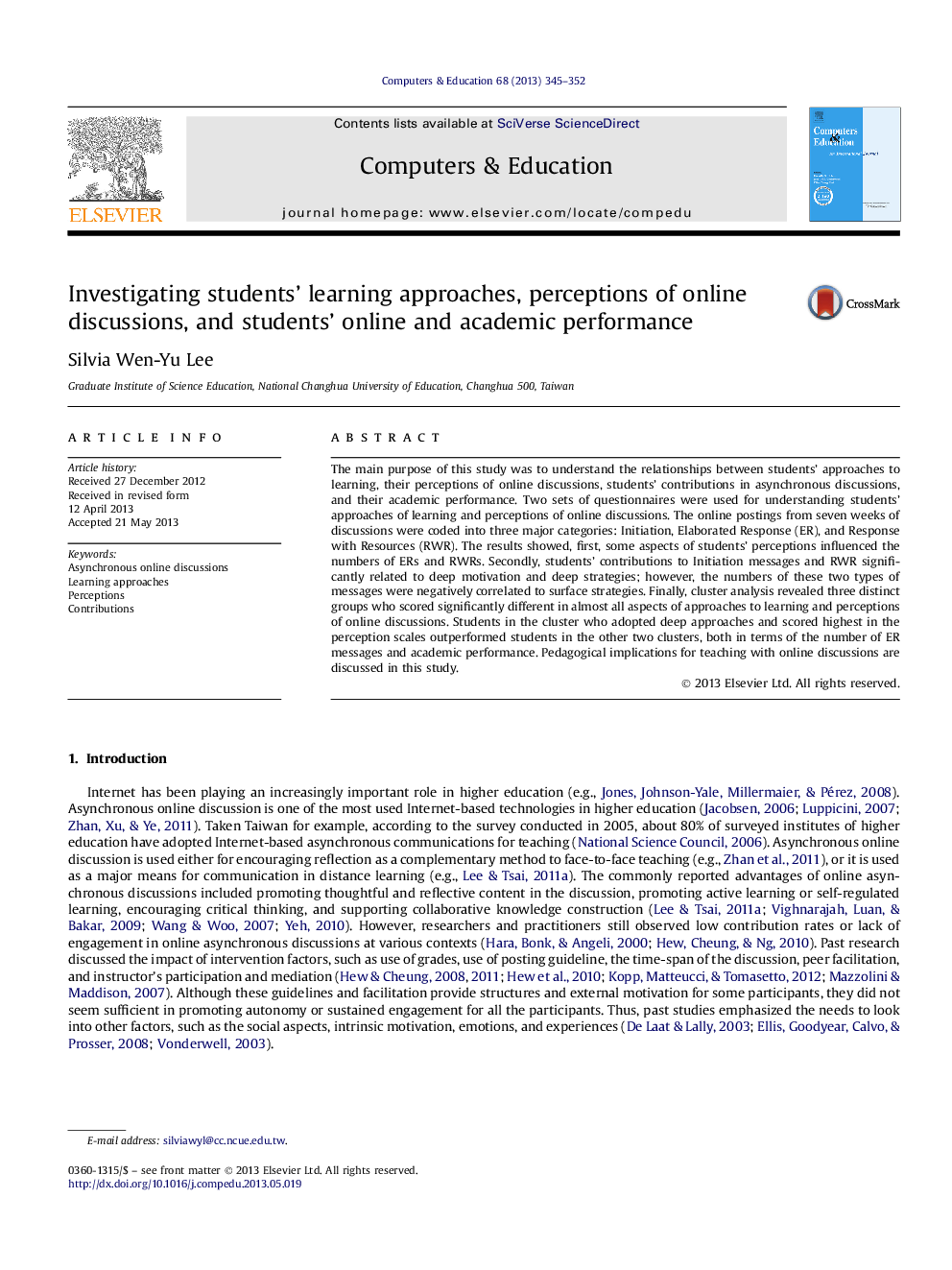| Article ID | Journal | Published Year | Pages | File Type |
|---|---|---|---|---|
| 348490 | Computers & Education | 2013 | 8 Pages |
•This study created and validated the PAOD questionnaire.•This study categorized online messages and explored potential factors.•Perceptions of Cognition, Affection, Skills, and Efficacy influenced ER messages.•Initiation and RWR messages significantly related to deep motivation and strategies.•Initiation and RWR messages were negatively correlated to surface strategies.
The main purpose of this study was to understand the relationships between students' approaches to learning, their perceptions of online discussions, students' contributions in asynchronous discussions, and their academic performance. Two sets of questionnaires were used for understanding students' approaches of learning and perceptions of online discussions. The online postings from seven weeks of discussions were coded into three major categories: Initiation, Elaborated Response (ER), and Response with Resources (RWR). The results showed, first, some aspects of students' perceptions influenced the numbers of ERs and RWRs. Secondly, students' contributions to Initiation messages and RWR significantly related to deep motivation and deep strategies; however, the numbers of these two types of messages were negatively correlated to surface strategies. Finally, cluster analysis revealed three distinct groups who scored significantly different in almost all aspects of approaches to learning and perceptions of online discussions. Students in the cluster who adopted deep approaches and scored highest in the perception scales outperformed students in the other two clusters, both in terms of the number of ER messages and academic performance. Pedagogical implications for teaching with online discussions are discussed in this study.
